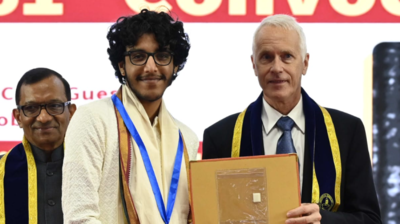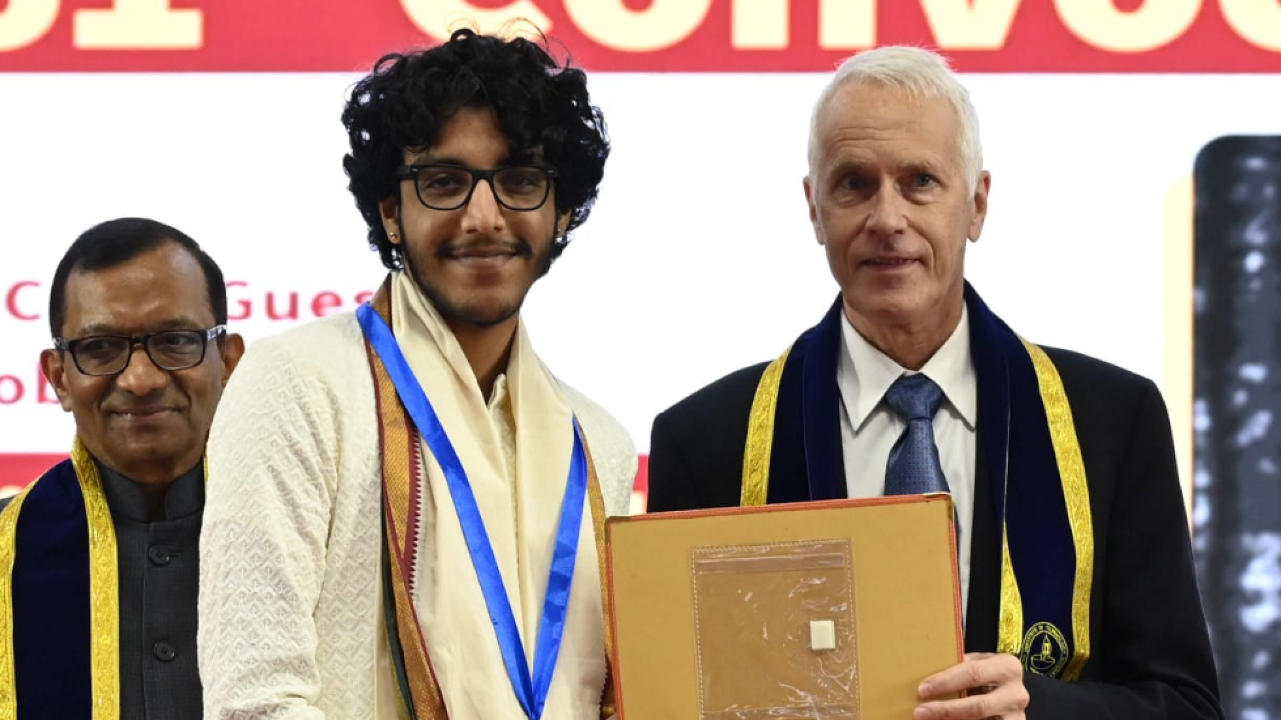IIT prize winner slams ‘genocide in Palestine’

CHENNAI: IIT-Madras student Dhananjay Balakrishnan, who received governor’s prize at the institute’s 61st convocation on Friday, spoke out against the ongoing ‘mass genocide’ in Palestine and said there is no end in sight.
Dhananjay won the prize for best all-round proficiency in curricular and extracurricular activities in a dual degree in mechanical engineering.
In his acceptance speech, Dhananjay said, “I feel like I would be doing myself, and everything I believe in, a great injustice if I do not use the stage I am presented with to say something important. This is a call for action. There is a mass genocide going on in Palestine. People are dying in vast numbers, and there is no end in sight.”
He said, “Why should we be bothered about this, you ask. Because STEM (science, technology, engineering and math) as a field itself has historically been used to advance the ulterior motives of imperial powers, such as Israel.”
Talking about the role of tech giants in the war, he said, “As engineering students, we work hard to get top-level jobs at tech giants, which offer very lucrative jobs with great benefits. However, these tech giants control various aspects of our lives today, as you know better than anyone. Many of these prestigious companies are also directly and indirectly implicated in the war against Palestine, by providing the state of Israel with technology—technology used to kill.”
Dhananjay said he also didn’t have all the answers.
“There are no easy solutions, and I don’t have all the answers. But I do know this—as engineers graduating into the real world, it is our job to be aware of the consequences of the work we do. And also, (it is our job) to interrogate our own position in these complex systems of power imbalances.”
“I hope that we can incorporate this awareness more into our daily lives, attempting to understand what we can do to liberate the oppressed, on lines of caste, class, creed, and gender. That is the first step to put an end to the never-ending cycle of suffering,” he added.
He urged his fellow students to work to lift people out of misery.
“Isaac Newton said that he stood on the shoulders of giants to take him where he wanted to go. I want to say this – I am here, we are here by standing on the magnanimous shoulders of the great Indian populace. We owe it to them to lift every single person out of their misery. Inaction is complicity. I hope you and I and all of us can take action to make the right decisions—however hard they may be,” he said.
At the convocation, 2,636 students, including 444 scholars, were awarded degrees.
Nobel laureate Brian Kobilka handed over prizes and medals in the convocation.
